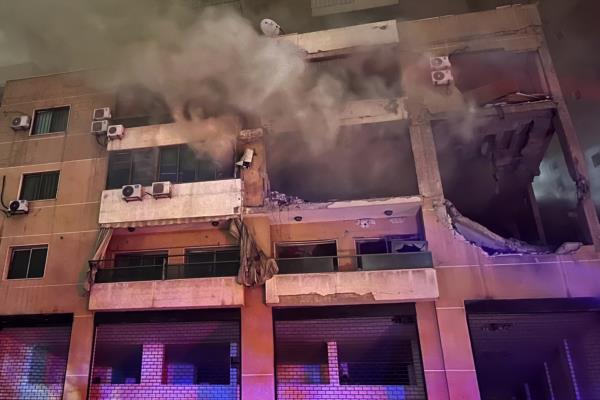
Lebanon is in a state of heightened tension following the assassination of a top Hamas leader in Beirut. The United Nations force stationed in the country has expressed deep concern about a potential escalation in the Middle East. The assassination, which took place on Tuesday, has been attributed to an airstrike carried out by Israel, according to a US official. The number two of Hamas, Salah al-Aruri, was killed in the attack.
Hezbollah, the Iranian-backed militant group, has vowed to retaliate against any strike on Lebanese soil. The Secretary-General of Hezbollah, Hassan Nasrallah, reiterated this warning, stating that their response to any Israeli aggression would be limitless. Meanwhile, Hamas's political chief, Ismail Hanir, has condemned the assassination, holding Israel responsible.
While Israel has neither claimed nor denied involvement in the airstrike, the Biden administration has been informed that Israel was likely behind the attack. The US, however, was not notified in advance of the strike. Amidst these developments, there is growing concern about the potential for a broader regional war in the Middle East.



Lebanon's government has emphasized its desire for peace on its southern border and is actively trying to discourage Hezbollah from engaging in war with Israel. The US State Department has echoed these sentiments, stating that it is not in the interests of either Hezbollah or Israel to escalate the conflict in the region.
In a separate incident, explosions occurred at the grave of Qasem Soleimani in Iran. The US State Department denies any involvement, and it is also believed that Israel is not responsible. The attack bears the hallmarks of a non-state sponsored operation, as it targeted civilians attending a ceremony rather than specific individuals or facilities.
Iran's Supreme Leader, Ali Khamenei, has called for severe retribution against whomever is responsible for the attack. It is expected that Tehran will undertake investigations to determine the culprits and deliver its response accordingly.
If ISIS or another regional terrorist group is found responsible, Iran's response could range from arresting their supporters within the country to conducting missile attacks against their bases or even launching a short-term military incursion into neighboring Pakistan or Afghanistan.
The motivations behind the attack could be rooted in ISIS's goal of destabilizing and overthrowing regional governments to establish an Islamic caliphate. Their animosity toward Iran stems from its support of Bashar al-Assad, who has actively fought against ISIS supporters in Syria.
With tensions rising, there is a need for clearer red lines and policies from Western nations. Setting specific red lines and demonstrating the willingness to uphold them is essential for maintaining credibility and deterring potential aggressors. Failing to do so risks undermining credibility and could lead adversaries to push boundaries further, ultimately sparking a catastrophic conflict.
As the situation unfolds, there is a growing sense of concern about the consequences of these recent events and the potential for the situation to escalate further. The international community will be closely monitoring developments and working towards de-escalation to prevent a broader regional war in the Middle East.







